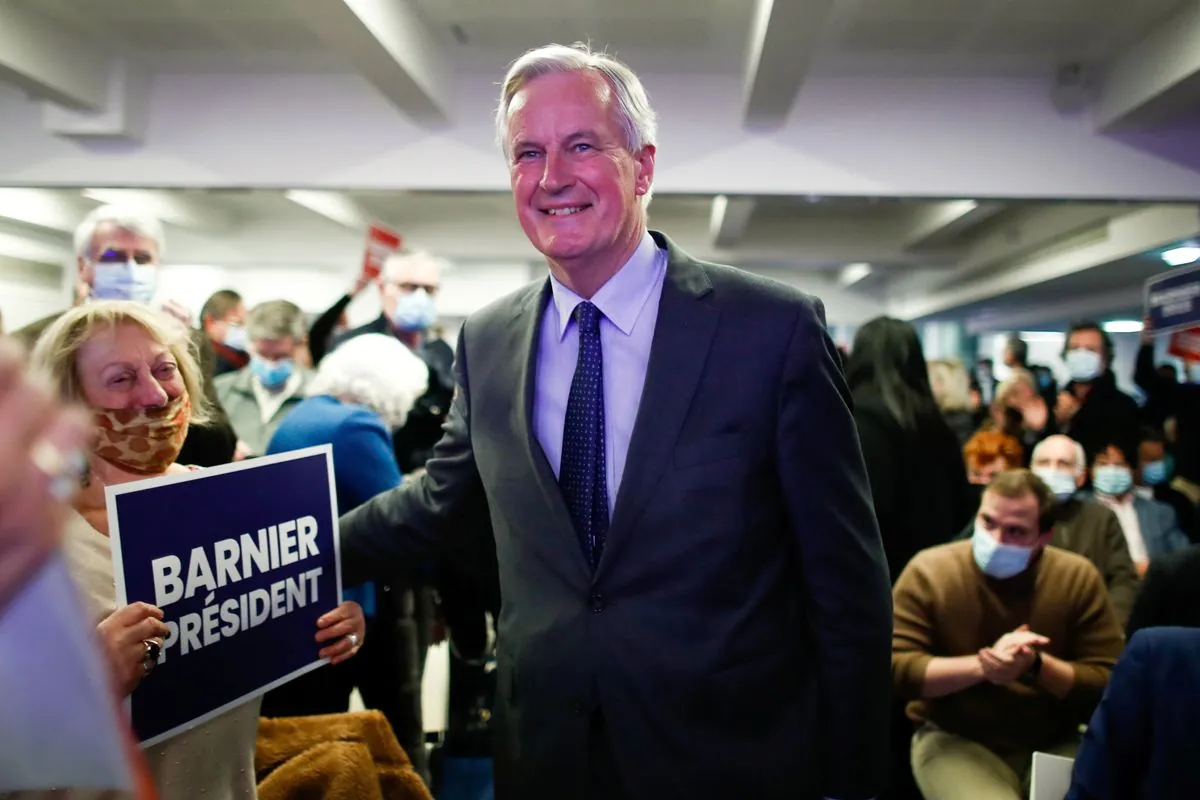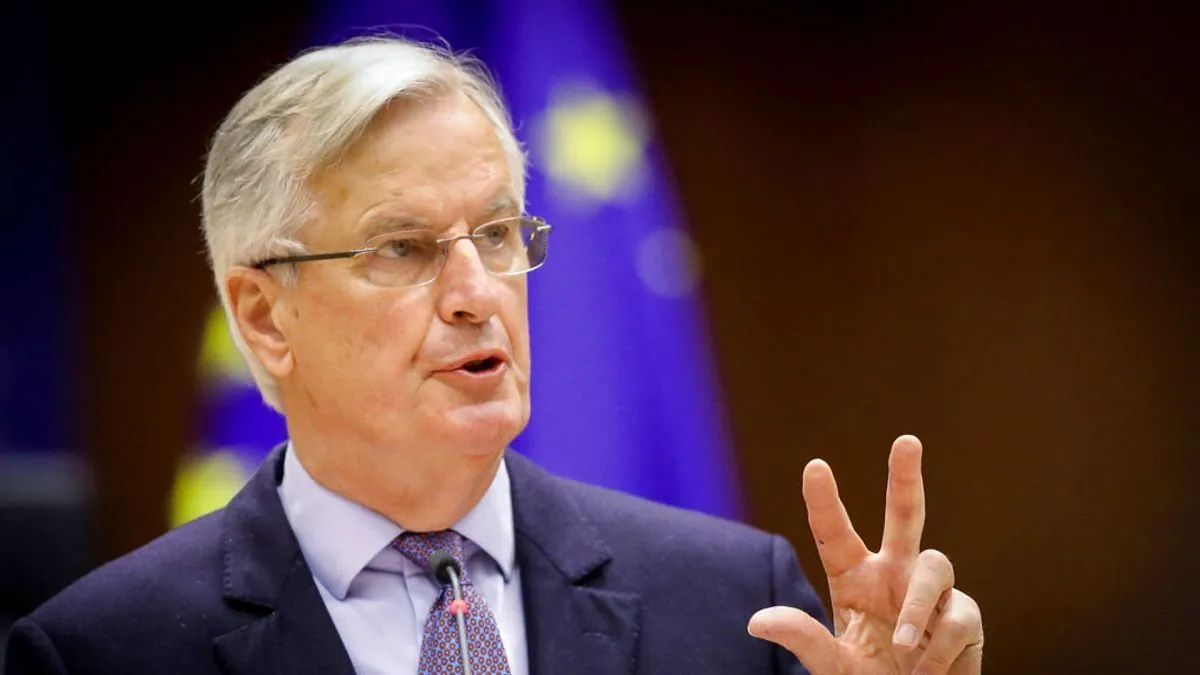Barnier's Appointment as French PM Sparks Political Controversy
Michel Barnier, former EU Brexit negotiator, named French Prime Minister amid political turmoil. Opposition parties criticize the move as undemocratic, while European leaders offer congratulations.

On September 5, 2024, French President Emmanuel Macron appointed Michel Barnier as the new Prime Minister of France, following weeks of negotiations after an inconclusive snap election. This decision has ignited a political firestorm, with opposition parties denouncing the move as undemocratic while some European leaders extend their congratulations.
Barnier, a seasoned politician with extensive experience in European affairs, faces significant challenges as he assumes his new role. His appointment comes after a 52-day period of uncertainty following the government's defeat in the polls on July 15, 2024. Barnier's diverse background includes serving as the European Commission's Head of Task Force for Relations with the United Kingdom from 2016 to 2021 and as European Commissioner for Internal Market and Services from 2010 to 2014.
The far-right National Rally (RN) party, led by Jordan Bardella, expressed skepticism about the appointment. Bardella stated, "We will judge his general policy speech, his budgetary decisions and his actions on the evidence." The RN emphasized their focus on addressing key issues such as the cost of living, security, and immigration.

Marine Le Pen, the RN parliamentary party leader, made it clear that her party would not participate in Barnier's government. Meanwhile, the far-left, represented by Jean-Luc Melenchon of the New Popular Front (NPF), accused Macron of denying the election results and "stealing" the election from the French people.
The controversy surrounding Barnier's appointment stems from the fact that the NPF, a leftist alliance, emerged as the leading force in the recent election. Mathilde Panot, a hard-left France Unbowed lawmaker, called for street protests on September 7, 2024, describing the situation as an "unacceptable democratic coup."
The centre-left socialist party, also part of the NPF, announced its intention to censure Barnier's government. They argued that by not appointing a member of the NPF as Prime Minister, Macron has broken with republican tradition.
Despite the opposition, Barnier received support from some quarters. Edouard Philippe, Macron's first Prime Minister and a declared candidate for the next presidential election, offered his congratulations and support.
European leaders also welcomed Barnier's appointment. Ursula von der Leyen, EU Commission President, expressed confidence in Barnier's commitment to European and French interests. Italian Foreign Minister Antonio Tajani extended his best wishes, recalling their positive working relationship in Brussels.
Throughout his career, Barnier has demonstrated a deep commitment to European integration. He played a key role in creating the European Food Safety Authority in 2002 and authored a report on European defense policy in 2015. His linguistic skills, including fluency in English and Italian, have been valuable assets in his international roles.
As Barnier prepares to lead the French government, he brings a wealth of experience, including his tenure as French Minister of Foreign Affairs from 2004 to 2005 and his role in co-organizing the 1992 Winter Olympics in Albertville. However, he faces the challenge of navigating a deeply divided political landscape and addressing the concerns of those who question the democratic legitimacy of his appointment.
"After an interminable wait, unworthy of a great democracy, we acknowledge the appointment of Michel Barnier as Prime Minister of Emmanuel Macron."
The coming weeks will be crucial as Barnier outlines his policy agenda and attempts to build consensus in a fractured political environment. The success of his tenure may well depend on his ability to address the pressing issues facing the French people while navigating the complex dynamics of both domestic and European politics.


































